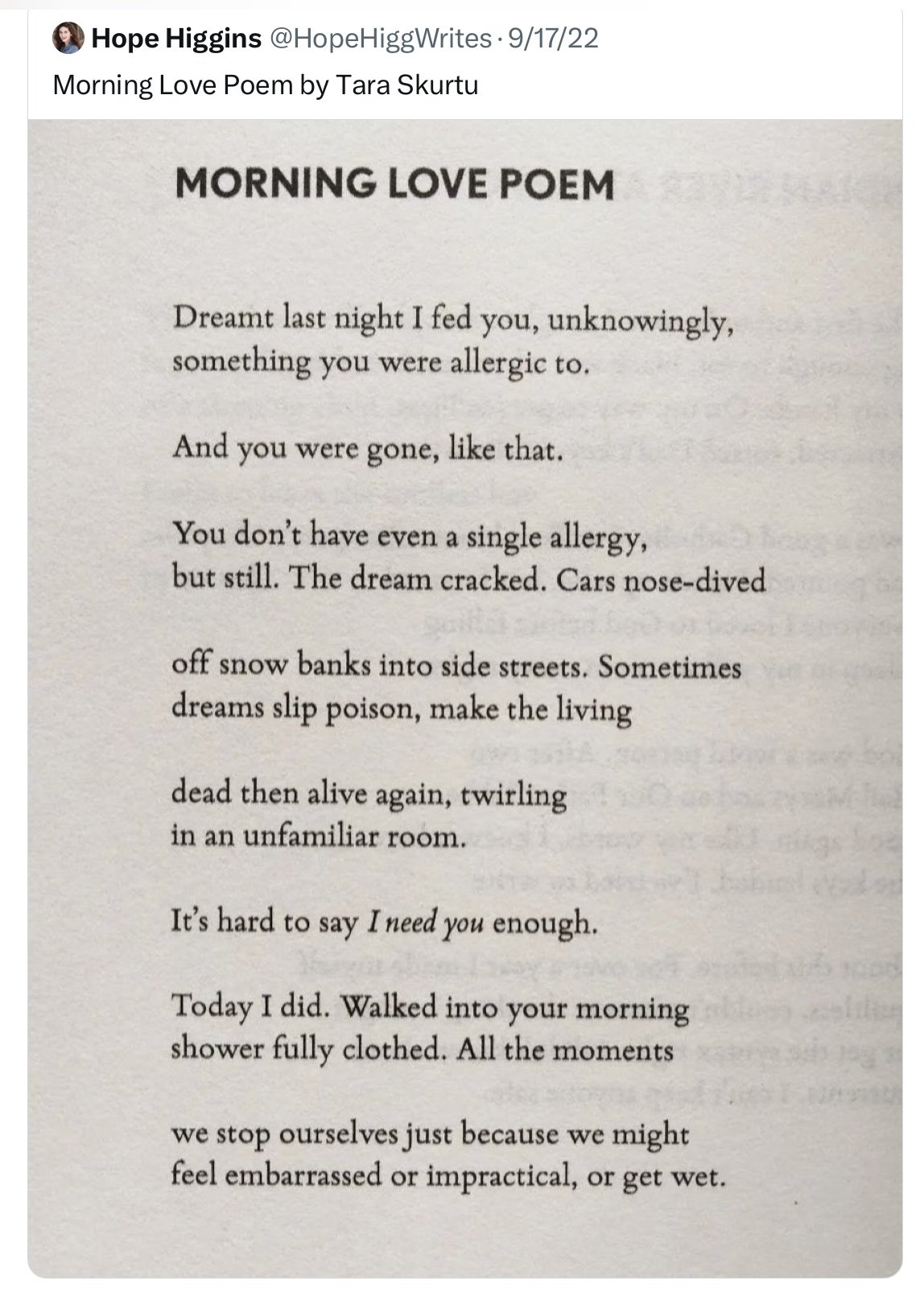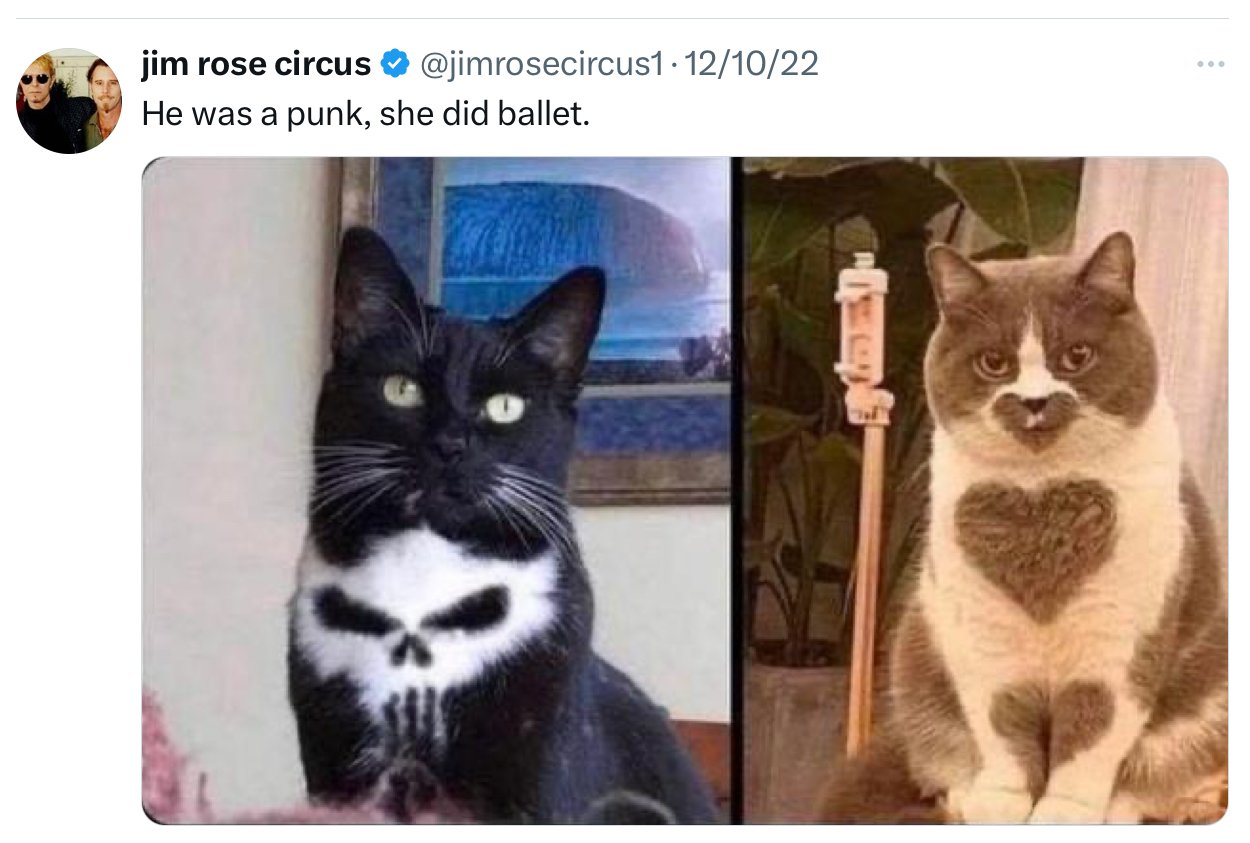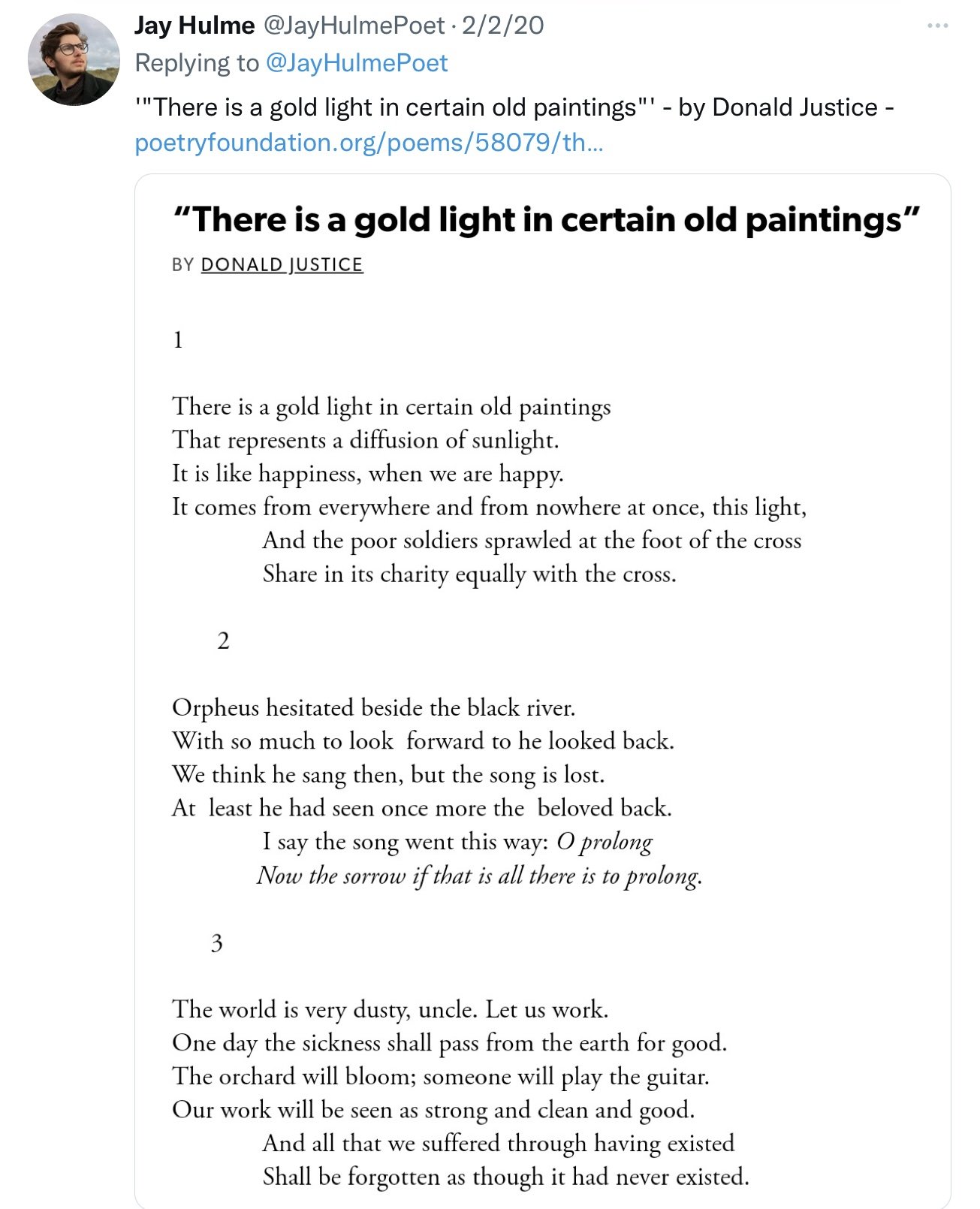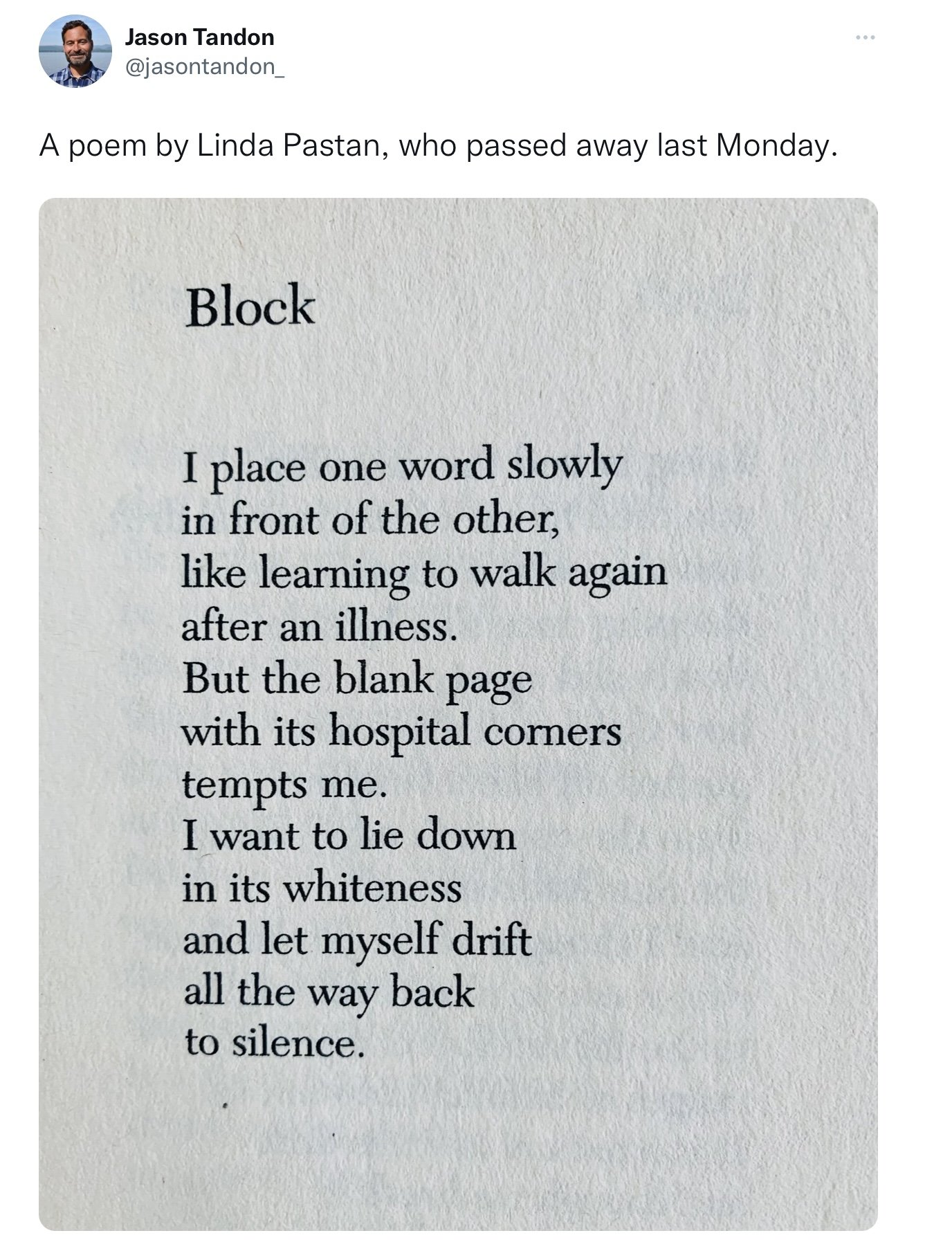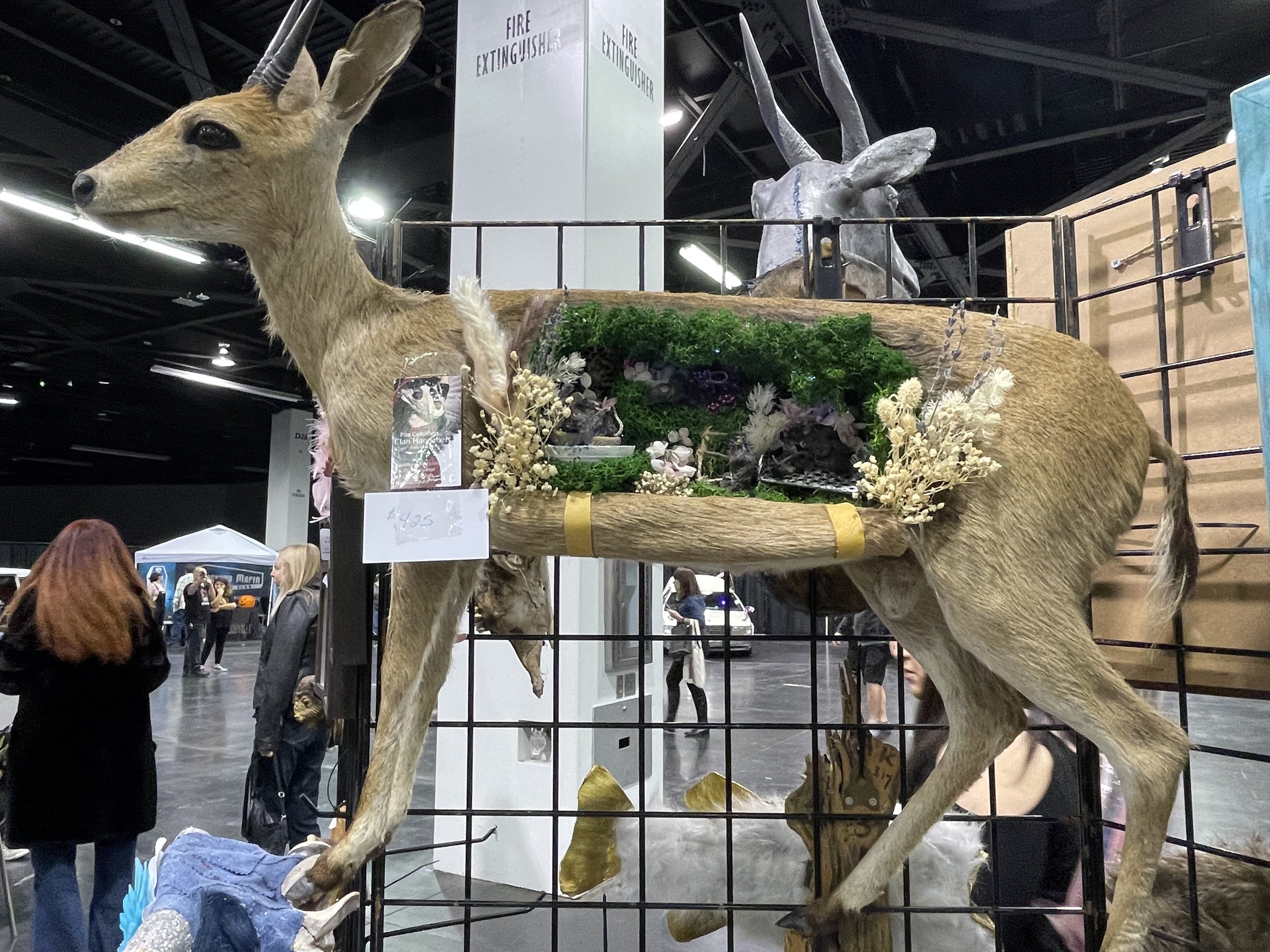It can be hard to show how much we care about someone else or understand the trust another has in us. Despite our essential loneliness, we are entangled in one another, and those ties create such beauty and strength. Recently I received a message from a friend that brought me joy. I do not believe I have ever helped her as much as she has helped me, but I am grateful she thinks I have. If I could, I would slip into each nightmare to fight the monsters, find her missing clothes or book report, and catch her as she falls. And she would do the same.
For the first prompt, write a poem or story about a dream in which another person rescued you or brought you comfort, or how you would enter their dreams to rescue them. Try to keep the logic of a dreamworld intact.
The other prompts are inspired by this poem by Tara Skurtu, which is a favorite of mine. I like it so much I may have already used it in a previous post. Perhaps what I love best are the two individual lines—how they create a turn in the poem—and the line breaks: “dead then alive again, twirling” and “Today I did. Walked into your morning / shower.”
For the second prompt, write about a moment when you showed someone how much you loved them. Or write about someone offering you their love and trust. How did you respond?
For the third prompt, use the line “It’s hard to say I need you enough” as a ghostline. Remember to erase the line and credit the poet for your inspiration. Or you may use the line as your title but still credit Tara Skurtu.
The fourth prompt is to write a new poem or take an old poem and arrange it in couplets but have at least one single line that represents a turn. Experiment with the sonnet form if you like. Often reorganizing a poem into a new form can help with eliminating unnecessary lines or finding the actual heart of poem.
The final prompt is another ghostline (appropriately enough for this line): “And you were gone, like that.”
Good luck writing. And good luck showing how much you love and need the people in your life. Bring them joy.


